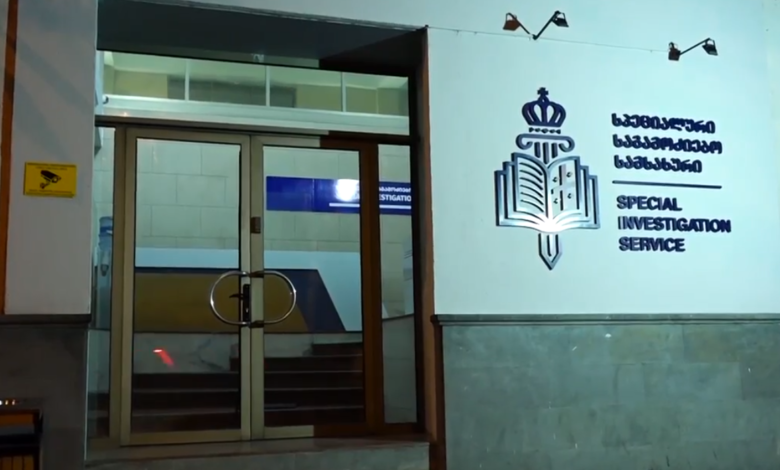
SIS Acts on CoE Advice: ‘Ochigava Case’ Probe Continues, ‘Machalikashvili Case’ Reinvestigation Rejected
On June 18, the Special Investigation Service (SIS) reported that it issued resolutions regarding the cases of the “Tsintsabadze Group” based on the recommendations issued by the Committee of Ministers of the Council of Europe. The SIS decided to continue the investigation into the “Ochigava v. Georgia” case but determined that re-investigation of the “Machalikashvili and Others v. Georgia” case was not necessary.
The SIS notes that in the case “Ochigava v. Georgia,” the ECHR determined on February 16, 2023, that Georgia violated Article 3 (torture) of the Convention both substantively and procedurally in relation to the ill-treatment of Akaki Ochigava, which included episodes of torture. Despite the conviction of seven Gldani Prison employees for systematic prisoner ill-treatment between 2011-2012, the Court noted that some torture episodes were inadequately investigated. Consequently, the Special Investigation Service (SIS) acknowledged the Court’s findings. It deemed it necessary to continue a comprehensive investigation into Ochigava’s mistreatment, focusing on actions by certain Special Penitentiary Service employees under the second part of Article 144³ of Georgia’s Criminal Code.
In the case “Machalikashvili and Others v. Georgia,” the European Court of Human Rights issued a decision on January 19, 2023, finding no violation of the substantive part of Article 2 (right to life) of the Convention by Georgia and declaring the complaint inadmissible regarding Article 3. The Court noted a procedural violation of Article 2. The SIS decided at that time to await recommendations from the Committee of Ministers of the CoE regarding the need to reinvestigate.
In March 2024, the Committee of Ministers recommended that Georgia consider whether it was appropriate to renew the investigation. Following this recommendation, the SIS reviewed the case, which had been closed in January 2020, and concluded that the initial investigation was “comprehensive” and there was no need to reinvestigate. The ECtHR had previously acknowledged that the investigative measures had been carried out but also pointed out procedural shortcomings, such as the involvement of a State Security Service employee in the initial investigation and the delayed interrogation of special forces officers.
The SIS says that renewing the investigation would be futile, as the identified flaws could not be corrected retrospectively. In addition, the absence of pre-operation documentation, the delayed disclosure of secret materials, and the hypothetical risk of collusion among special forces personnel were deemed insufficient grounds for a re-investigation.
“The decisions made by the service regarding the cases of Machalikashvili and Ochigava will be sent to the Committee of Ministers of the Council of Europe and the applicants,” – says the Special Investigation Service.
Also Read:
- 20/11/2023 – Human Rights Watchdog Urges Swift Action on ECHR Ruling for Machalikashvili Case Investigation
- 06/04/2023 – CoE Report Says “Lack of Legislative Reform” in Georgia
- 28/01/2020 – Prosecutor’s Office Terminates Investigation into Machalikashvili Case
- 13/01/2020 – Watchdog Assesses Machalikashvili Case Materials Containing State Secrets
- 01/10/2019 – ECHR Launches Consideration of Machalikashvili Case
This post is also available in: ქართული Русский